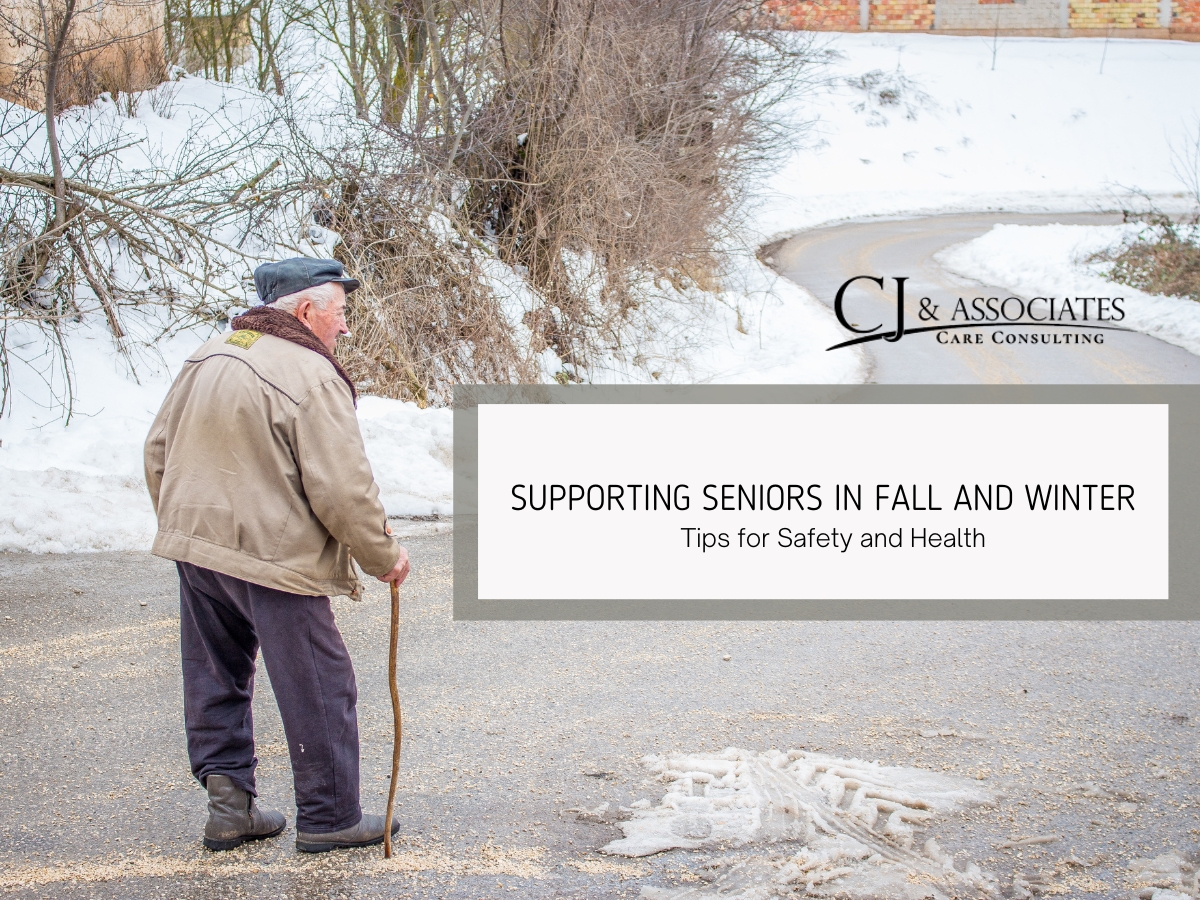As the seasons change and the air becomes crisp, the arrival of fall and winter brings a unique set of challenges, especially for seniors. The colder weather, shorter days, and increased risk of seasonal illnesses require special attention to ensure the well-being of elderly loved ones. Here are some tips on keeping seniors safe and healthy during the colder seasons.
-
Winter Safety at Home
- Heating Precautions: Make sure heating systems are in good working order, and remind seniors to keep their homes adequately heated. Space heaters should be used with caution, as they can be a fire hazard. Ensure smoke detectors are functioning correctly.
- Falls Prevention: Icy sidewalks and slippery floors can lead to falls. Encourage seniors to wear non-slip shoes, use handrails when climbing stairs, and consider installing grab bars in bathrooms.
- Winterizing the Home: Proper insulation and weather stripping can help keep homes warm and energy efficient. Drafty windows and doors can make rooms uncomfortable and increase heating costs.
-
Flu Prevention
- Vaccination: Encourage seniors to get their annual flu shot. The influenza virus can be particularly severe for older adults, and vaccination is the most effective way to prevent it.
- Hand Hygiene: Emphasize the importance of frequent handwashing, especially during flu season. Proper hand hygiene can help prevent the spread of viruses.
-
Stay Active and Social
- Physical Activity: Encourage seniors to stay active, even during colder months. Indoor exercises like yoga or tai chi can help maintain mobility and flexibility.
- Social Engagement: Loneliness can be more pronounced in the winter when outdoor activities are limited. Encourage seniors to participate in social events, visit friends, or join clubs.
-
Healthy Eating
- Nutrient-Rich Diet: A balanced diet with plenty of fruits and vegetables can help boost the immune system and provide essential nutrients. Consider preparing warm, nourishing meals like soups and stews.
-
Medication Management
- Stock Up: Ensure seniors have an ample supply of prescription medications on hand, so they don’t run out during winter weather.
-
Regular Check-ups
- Health Assessments: Regular medical check-ups are vital for monitoring overall health, managing chronic conditions, and catching any issues early.
-
Winter Driving Safety
- Assess Driving Ability: If a senior family member continues to drive, assess their driving ability. Ensure their vehicle is winter-ready with proper tires and an emergency kit.
-
Consider Professional Help
- Geriatric Care Managers: Professional geriatric care managers, like those at CJ & Associates Care Consulting, can provide guidance on senior care during the colder months. They can help create a winter safety plan tailored to individual needs.
Supporting seniors during fall and winter requires a combination of safety precautions, health measures, and social engagement. By taking these steps, families can ensure their elderly loved ones enjoy a safe, healthy, and fulfilling winter season.






